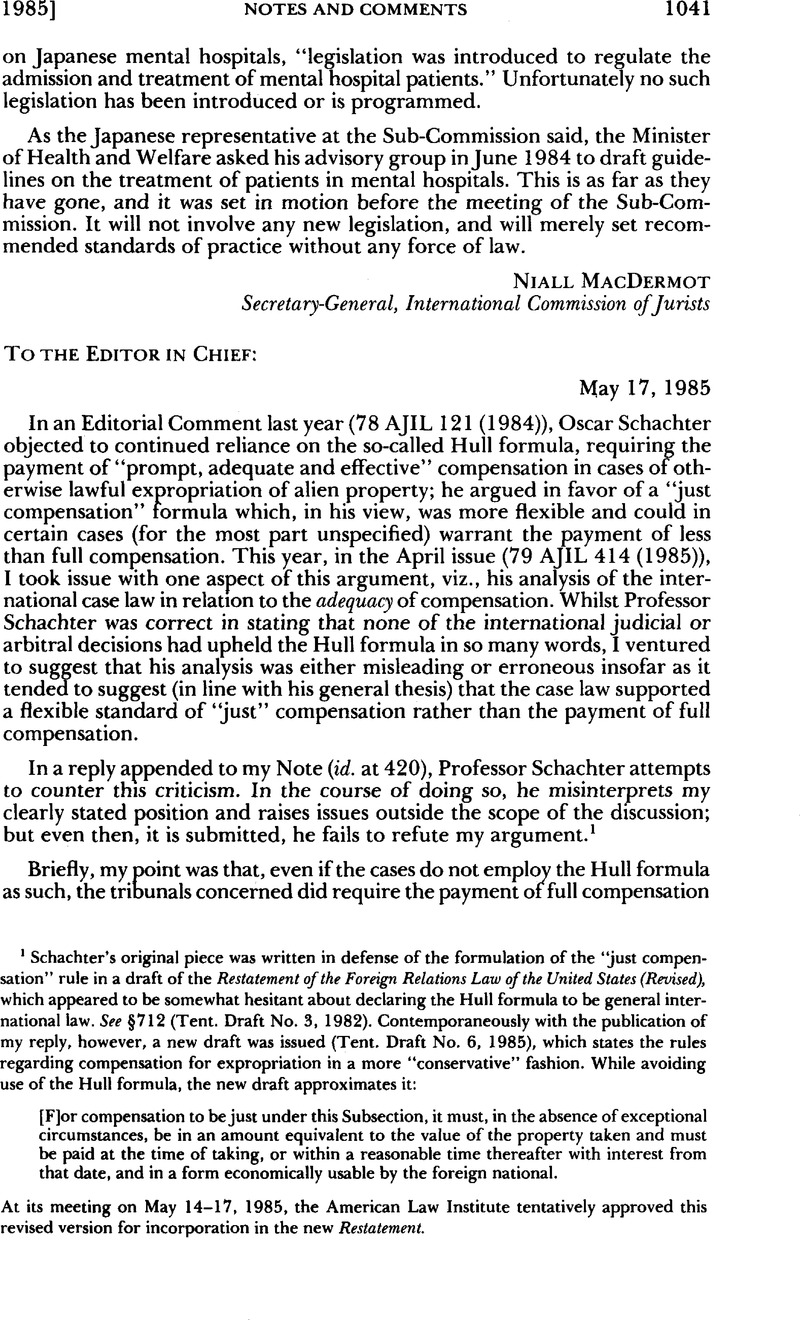No CrossRef data available.
Published online by Cambridge University Press: 23 March 2017

1 Schachter’s original piece was written in defense of the formulation of the “just compensation” rule in a draft of the Restatement of the Foreign Relations Law of the United States (Revised), which appeared to be somewhat hesitant about declaring the Hull formula to be general international law. See §712 (Tent. Draft No. 3, 1982). Contemporaneously with the publication of my reply, however, a new draft was issued (Tent. Draft No. 6, 1985), which states the rules regarding compensation for expropriation in a more “conservative” fashion. While avoiding use of the Hull formula, the new draft approximates it:
[F]or compensation to be just under this Subsection, it must, in the absence of exceptional circumstances, be in an amount equivalent to the value of the property taken and must be paid at the time of taking, or within a reasonable time thereafter with interest from that date, and in a form economically usable by the foreign national.
At its meeting on May 14–17, 1985, the American Law Institute tentatively approved this revised version for incorporation in the new Restatement.
2 With the partial exception of the controversial LIAMCO arbitration (Libyan American Oil Co. v. Government of the Libyan Arab Republic, Apr. 12, 1977, 62 ILR 140 (1982), 20 ILM 1 (1981)).
3 Since I wrote my Note, a further decision of the Iran-United States Claims Tribunal supporting the “full compensation” standard has come to hand: Starrett Housing Corp. v. Islamic Republic of Iran, Dec. 19, 1983 (Chamber One), 23 ILM 1090 (1984). See also the award in Tippetts, Abbett, McCarthy, Stratton v. TAMS-AFFA Consulting Engineers of Iran, June 29, 1984 (Chamber Two), Iranian Assets Litigation Rep., July 13, 1984, at 8,820, 8,828–29.
4 1928 PCIJ, ser. A, No. 17.